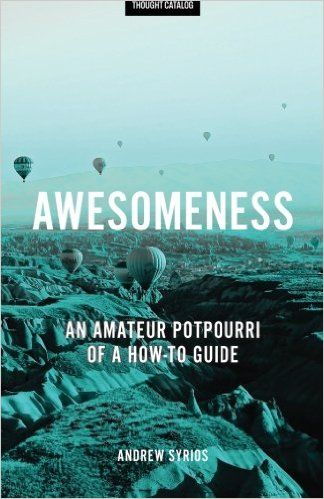|
Here's an old article from my previous blog Swift Economics that is even more relevant now:
Despite the recession and a myriad of reports to the contrary, the world has gotten a lot better. People live longer, are wealthier, more secure and eat more than ever before. Never before could anyone imagine that obesity would be a problem. This is especially true in Western and Asian countries, but is even true for everywhere else with the possible exception of sub-Saharan Africa. Technology, science and relatively free markets would be my explanation for this development, but this new dynamic has a downside. That downside is what I’ll be discussing here. Unfortunately, I don’t have much in the way of solutions, but I’d at least like to elucidate the problem. Back in the good old days, people had few choices and that made it relatively simple to plot one’s path in life. If you’re born on a farm, you work on the farm. Most artisan trades required a fair amount of practice, but switching to another by no means required untold years of training. Human beings are just naturally equipped to pick up manual labor without a significant amount of education. Furthermore, the success or simply life courses of others was not so readily apparent. People in a small town basically lived a simple life; family, profession and if they were lucky, a little down time. Certainly there were a myriad of problems I would not want to return to; medieval peasants constantly faced starvation and 19thcentury factory workers would put in 60-80 hours a week in grueling conditions. But one didn’t have to think about whether to pursue a career as an engineer, doctor, accountant, entrepreneur, etc. At least not to the degree we do today. Today, once you set off on the course of becoming an engineer, switching to become a doctor is all but impossible. It would require four years of college, three years of medical school and then several more years of residency. If you’ve already got a degree in engineering and a few years of work experience under your belt, switching would require a lifespan significantly longer than the human body can provide. The Internet offers an array of possibilities to gain knowledge or start on a new career or social path, and well, see what everyone else has been doing. Do you want to travel the world? Do you want to learn to play a musical instrument? Do you want to learn a second language? Do you want to become an expert in 19 different subjects? Do you want to find a soul mate (or a bunch of short term ones)? Do you want to become an Internet entrepreneur and make sizeable residual income? Or how about learning to ski, mountain climb or run marathons? P90X or Insanity? Atkins or Paleo? There’s so many choices, so many paths and yet only a limited amount of time to achieve whatever your goal was. In Geoff Colvin’s book Talent is Overrated, he discusses how Mozart and Jerry Rice got so good at what they did, which amounted to little more than a ton of hard work. Mozart started at an ungodly young age and dedicated his life to music (his first symphonies were not particularly good). Jerry Rice was legendary for showing up really early to practice and leaving really late. They became great through monomaniacal focus on their craft. Such monomaniacal focus on a given craft was surely all but impossible back in the day when starvation was a real concern. This is one piece of the explanation of why economic growth started increasing exponentially in the late 18th century. Once people had enough to eat they could focus on building a business, creating new inventions and coming up with a vast number of scientific and medical breakthroughs. Enough people dedicated themselves so thoroughly to such pursuits that the capital and technology simply built upon itself. Such focus on a single career could allow someone to master it, whereas for normal people, they still typically lived in small towns where everyone around them was fairly similar to them and options were limited. I think it’s no leap to say that today such dedication has been diluted among the high performers and that the simple life of us common folk ain’t so simple anymore. As we move from the industrial age into the information age, careers require significantly more education to master. Simple tasks can be automated, now even tradesmen such as electricians have an awful lot more to learn than many of the artisans of old. We’ve simultaneously moved from a society with limited options yet few barriers to entry to one with many options but difficult, typically intellectual barriers to entry. How then can one find a vocation to dedicate him or herself to? (To say nothing of family or other pursuits). I think the number of hobbies people have as well as fads (diets, get-rich-quick schemes, etc.) and escapism (video games, celebrity gossip, fashion magazines) have increased dramatically due partially to this dynamic. Mass media is, of course, also to blame. Perhaps even the totalitarian impulse comes from this. Most people simply don’t want to make up their minds or bear the consequences of their decisions. Being told what to do may not always be pleasant, but it is much easier. While authoritarian systems lead to less growth and science as well as more oppression and war, the impulse to have one’s life directed is certainly the path of least resistance; if nothing else it’s a break from all the other decisions in life. I can’t say how many hobbies, diets or plans I’ve seen people pick up and then subsequently drop. Is this just part of human nature? Perhaps it’s an unrealistic optimism we’ve evolved to motivate us to try instead of give up. Or perhaps it’s something new to our own time. Perhaps after being excited by the first bright, shiny object, we get distracted and turn our attention to the second bright, shiny object. And repeat. Rates of depression and mental illness are rising, which of course could mean we’re just counting more conditions as such, or that people are almost paralyzed by the choices and subsequent dedication required to actually fulfill those choices. People then compare themselves to others who have succeeded in those areas and are so prominently displayed. Is it any wonder that people go figuratively or literally crazy? Back when starvation was the issue, who would care if their neighbor had six pack abs. I shouldn’t make too much of this; while this is certainly a problem, the trade-off we’ve made is well worth it. As I mentioned, just about every metric shows the world getting better. Still, the problem of choices and the subsequent distractions, indecision and passing fancies are an issue. Solutions are tough to come by, but somehow, a renewed sense of prioritization is necessary. Schools could help, but I’ve pretty much given up on getting quality results from our public schools. Good parenting is probably the most effective answer as parents can help instill a sense of direction and purpose in their children, which just makes it all the more tragic that family breakdown is all but the norm these days. Perhaps the myriad of choices and unrealistic expectations built up by an insatiable media play a part in that breakdown as well. Still, that’s probably the best place to start.
Comments
|
Andrew Syrios"Every day is a new life to the wise man." Archives
November 2022
Blog Roll
The Real Estate Brothers The Good Stewards Bigger Pockets REI Club Meet Kevin Tim Ferris Joe Rogan Adam Carolla MAREI 1500 Days Worcester Investments Just Ask Ben Why Entrepreneur Inc. KC Source Link The Righteous Mind Star Slate Codex Mises Institute Tom Woods Michael Tracey Consulting by RPM The Scott Horton Show Swift Economics The Critical Drinker Red Letter Media Categories |

 RSS Feed
RSS Feed


